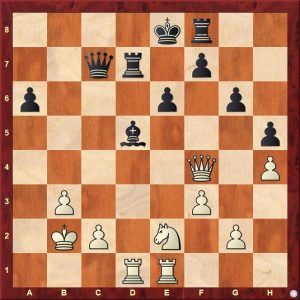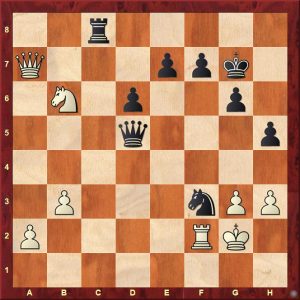It was very easy to choose this Game of the Week, although the Candidates (part 2) is back with us, one game played in the Thanet Early Summer Swiss had spectators glued to their mice. I can only guess how the two participants felt during the game and, more importantly, how they felt once the game had finished.
The game started very quietly, with the opposing armies, to some extent, ignoring each other and instead just developing and getting ready for battle. However once White sacrificed a piece for two pawns and the opportunity to get at his opponent’s King we saw a true battle.
I won’t give the result away here, suffice to say that the game twisted and turned. Please just enjoy the game and applaud both players for a great game of chess
White: pm5 Black: Ferrarifan


